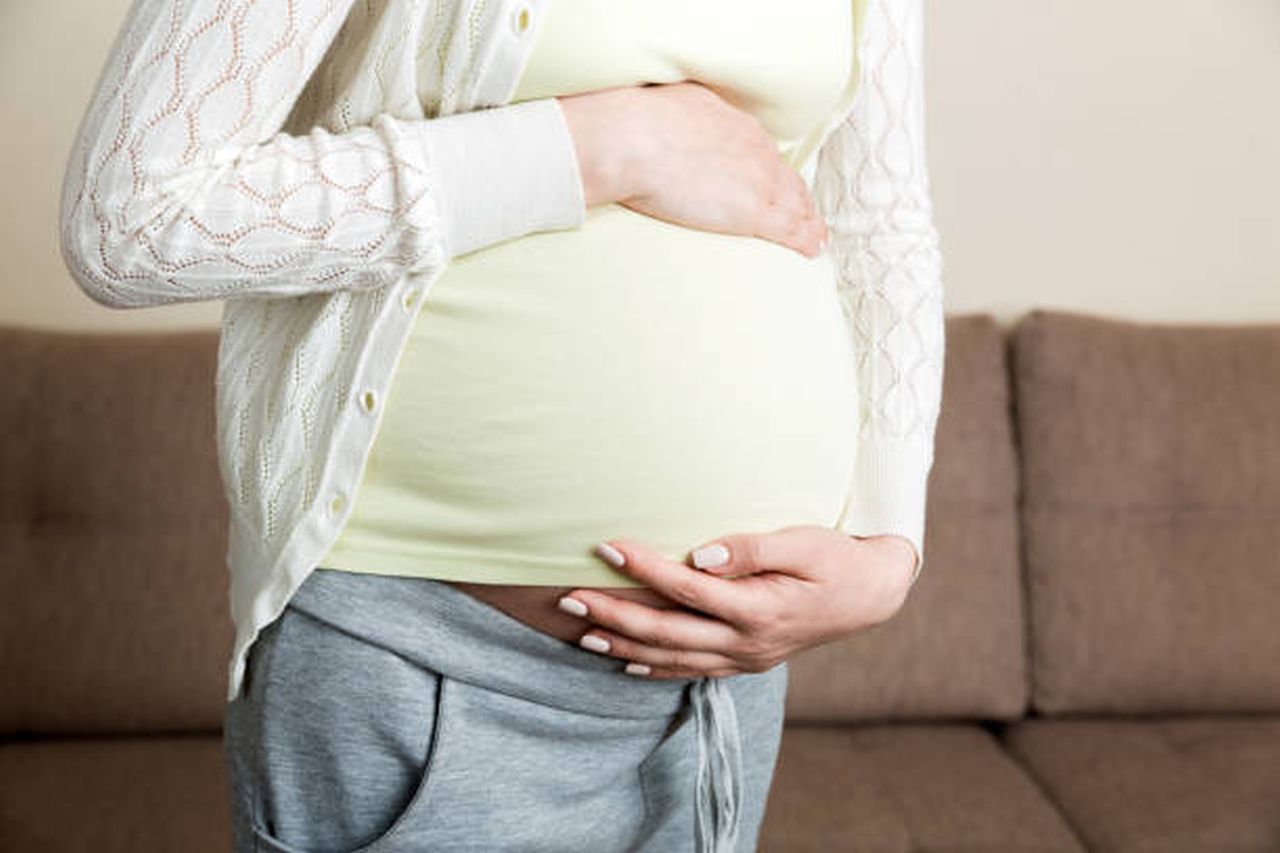Pregnancy-related constipation is a frequent problem, but it need not be. You can cope with this situation in a few different ways, all of which should reduce your pain.
Constipation can be brought on by progesterone because it slows down the digestive process. This post is for you if you've ever experienced the discomfort of constipation and are looking for advice on how to alleviate the problem.
How Early in Pregnancy Does Constipation Usually Start?
When progesterone levels begin to climb, around the second or third month of pregnancy, constipation often begins. As your uterus expands throughout pregnancy, the discomfort may intensify.
FAQS About Pregnancy
Eat 25 to 30 grams of fiber-rich foods each day: It's easy to ignore health advice that sounds too simple, like “just eat right.” But fiber really can help. Fiber softens your stools so that they're easier to pass. You can get fiber from fruits, veggies, whole grains, beans, peas and lentils.
Stool softeners moisten your stool, making it easier to pass. Studies show no evidence of side effects linked to docusate use during pregnancy. Docusate is considered safe to use during pregnancy.
Pregnant women should drink at least eight 12-ounce glasses of water a day. This will help keep your bowels soft and moving smoothly through your digestive tract. Try breaking up your daily food intake into five or six smaller meals to help with constipation relief.
Constipation during pregnancy is due to the increase in progesterone hormones that relax the intestinal muscle causing food and waste to move slower through your system. Sometimes iron tablets may contribute to constipation. Make sure you are drinking plenty of water if you are taking iron supplements.
If diet and lifestyle changes do not work, your doctor or midwife may recommend a laxative, such as lactulose or Fybogel. These laxatives are quite commonly used during pregnancy. Senna is occasionally used in pregnancy, and there is no evidence that it causes harm.
Why Do Pregnant Women Have Constipation?
During pregnancy, an increase in the hormone progesterone causes the body's muscles to loosen up. Include your intestines in it. Intestinal motility impairment also slows digesting. If you do this, you may experience constipation.
It is important to know what stage of pregnancy you are in while trying to determine the source of constipation. These are some of the possible causes:
Hormones
Intestinal peristalsis slows in early pregnancy because of fluctuating hormone levels. Because the colon collects more water from the chair during this time, it becomes more firm and more difficult to pass.
Prenatal Vitamins
Iron, a vital mineral that is occasionally lacking during pregnancy, can be found in plenty in prenatal supplements. Iron deficiency can lead to constipation and black, firm stools.
Pressure From The Uterus
As a pregnant woman progresses through her third trimester, her expanding uterus may put pressure on her bowel, making it more difficult to pass faeces.
Constipation is characterised by a lack of bowel motions and the accompanying discomfort, bloating, and difficulty passing difficult, dry stools that may even be painful. There's also the possibility of coming away from the experience feeling that you didn't get everything you could out of the chair.
Pregnancy is a time when constipation frequently occurs. According to a study published in Acta Obstetricia et Gynecologica Scandinavica, about three quarters of pregnant women will experience constipation and other digestive difficulties at some point. Reliable Sourcing.
Numerous options exist for treating constipation, ranging from OTC medications to natural therapies.
However, when a pregnant woman is considered, the number of viable options decreases.
Constipation, like many other pregnancy symptoms, is caused by pregnancy hormones.
The hormone progesterone slows digestion by reducing intestinal muscle contractions.
The plus side is that your kid benefits from the longer window of opportunity for nutrients to enter your circulation.
The problem is that there is a buildup of trash as a result. When your uterus grows, it pushes your bowels closer together and makes it difficult for them to do their normal job.
How Do I Deal with Constipation During Pregnancy?
You shouldn't just accept the fact that you'll be miserable for a whole nine months.
Several methods exist for relieving constipation (and so avoiding the unpleasant side effects of haemorrhoids):
If you're looking for a high-quality baby rocker, go no further than our selection.

Defend Yourself With Some Fibre
The elimination of waste is aided by eating fiber-rich meals; try to consume 25-35 grammes daily. You may choose to read nutrition labels, but there is no need to calculate anything.
Instead, fill up on raw or lightly cooked fruits and vegetables, as well as dried fruits (with the skin on, if possible).
Get started with a taste of this fiber-rich and delicious cuisine, which includes leafy green veggies and kiwi fruit, which has a powerful laxative impact.
When did you last plug in? Start with a small amount of bran or psyllium and increase it if necessary.
However, it's important to get your doctor's approval first, and you shouldn't go crazy with it, since these fibre powerhouses might flush out your system before your body has a chance to absorb them.
(Be aware that increasing the amount of fibre in your diet may cause transient gas, another typical pregnant ailment.)
Increasing the frequency and ease of bowel movements by using fibre supplements or eating more fibrous foods like fruits, vegetables, and whole grains.
Consuming between 28 and 34 grammes of fibre daily is ideal for adults.
Resist Refined
Refined carbs (such as refined cereals, pasta, white bread, and white rice) tend to block things up, thus eating them in excess is not recommended.
Drink Up
On a daily basis, Drinking 8-10 8-ounce glasses of fluids (water, vegetable/fruit juice, and broth) helps move solids through the digestive tract and softens the stool, making it easier to pass.
Hot liquids, such as the health spa standard hot water with lemon, can also be used to induce peristalsis (the intestinal contractions that help you go).
Since it acts as a moderate laxative, prune juice is a useful option for really severe instances. Staying hydrated is key to maintaining soft, easily passed stools.
Clear soups, teas, and naturally sweetened fruit or vegetable juices might be included to the diet if one finds that water is not helpful.
During Mealtimes, Try Not To Go To Your Limit
Consuming a large meal too quickly after another can cause your digestive system to become clogged up. If you want to reduce gas and bloating, try eating six little meals a day instead of three large ones.
If You Have to Go, Go
When you keep it in on a regular basis, you weaken the muscles that regulate bowel movement, which can lead to constipation.
Take Your Medications And Supplements Seriously
Contrary to popular belief, several nutrients and treatments that are beneficial to a pregnant woman's health (such as prenatal vitamins, calcium and iron supplements, and antacids) can actually cause or worsen constipation.
Until the situation improves, you should talk to your doctor about possible replacements (such as slow-release iron supplements) or dose changes.
If you're experiencing constipation, you may want to discuss taking a magnesium supplement with your doctor. Taking it before bedtime may ease sore muscles and promote restful sleep.
Eat Lots of Probiotic Foods!
Yogurts with live cultures contain the probiotic acidophilus that encourages the bacteria in the intestines to more effectively digest food and promote regular bowel movements.
Another option is to consult your doctor for a recommendation on a high-quality probiotic supplement in pill, chewable, or powder form that can be used in smoothies.
The gut is home to millions of beneficial bacteria that play an important role in maintaining good health. Regular bowel motions are supported by healthy gut bacteria, which probiotics may help restore. Probiotic-rich foods include fermented foods like yoghurt, sauerkraut, and kimchi.
Get A Move On
Physical activity during pregnancy is associated with more frequent bowel movements.
Just 10 minutes of walking can help start the blood flowing, so it's important to exercise at least as much as your doctor advises.
The passage of faeces through the intestines is aided by physical activity.
Constipation can be eased by exercising regularly, provided you have your doctor's okay first. If you can't commit to a rigors exercise routine, at least make time for a daily stroll.
Keep Away From Stimulant Laxatives
Natural or home-made laxatives and stool softeners may not be suitable for use during pregnancy. Before trying any over-the-counter or prescription drug or home treatment for constipation, check with your doctor.
Perform Kegel Exercises
Constipation-related straining, along with pregnancy and childbirth in general, can weaken the pelvic floor muscles, but doing Kegel exercises regularly can help strengthen them again.
Mind Your Calcium Intake
Constipation may result from consuming too much calcium. Dairy products, among other foods and supplements, are rich in calcium. Having too much milk and cheese can cause a back up in your intestines.
Sometimes Constipation is brought on by intolerance to certain foods. If you suffer from Constipation, keeping a food diary can help you determine if any particular foods (such dairy or gluten) are to blame.
Consult Your Physician
If self-care techniques aren't helping, go to your doctor. Docusate and polythene glycol are two examples of the OTC drugs she might suggest.
The risk of constipation can be exacerbated by some drugs. Prenatal vitamins with high iron content are commonly prescribed to pregnant women to reduce their risk of anaemia.
If the vitamins aren't working, talk to your doctor about switching brands. Nutritional strategies for preventing anaemia are another option worth exploring.
Research suggests that taking certain types of prenatal vitamins may help prevent constipation by as much as 30 percent.
Medication is one option for relieving constipation, but it should be used with caution.
It's important to consult your doctor or midwife before taking any drug, even over-the-counter ones, but especially if you're expecting (OTC).
If you're looking for a baby rocker, go no further than My Baby Nursery's selection.
Other Remedies That Are Pregnancy-Safe
Constipation can be avoided by eating more fiber-rich foods. It's a great source of vitamins and antioxidants for expecting mothers.
Pregnant women need between 25 and 30 grammes of dietary fibre each day to maintain healthy bowel habits.
Foods like fresh fruits, whole-grain bread, beans, peas, lentils, prunes, and bran cereals are all great options.
Try dicing up some apples, bananas, figs, and strawberries for a tasty and healthy fruit salad. The sweet corn, Brussels sprouts, and carrots that you roast would make a wonderful side dish.
If you've been suffering from constipation, you might find that eating five or six smaller meals each day helps.
The stomach will be able to digest food more efficiently and move it along to the intestines and colon without having to overwork.
Having a lot of food in your stomach at once can slow down your digestion and make you feel bloated.
Constipation is easier to manage with regular exercise. Regular physical activity improves intestinal motility.
The American Pregnancy Association recommends that pregnant women get three 20-30 minute workouts each week.
The possibilities for physical activity are practically limitless. On a quiet afternoon, you may go for a stroll down your favourite hiking trail, go for a dip at the gym, or do some prenatal yoga.
Before beginning any new workout regimen while pregnant, it's important to get your doctor's approval.
Stool softeners like Colace may be prescribed to pregnant women for temporary use if natural remedies for constipation have failed.
Stool softeners made by Colace can be purchased online. Continuous use, however, may alter your electrolyte balance or cause dehydration. Credible Origin.
Stool softeners work by adding moisture to the bowels, making elimination less of a chore. They come in helpful for expecting mothers who need to take iron supplements, which can cause constipation.
Softeners are often prescribed alongside iron supplements by doctors. Iron supplements of various types are also available.
It is recommended that you ask your doctor before using a stool softener to ensure that it is safe for you to take.
Inducing contractions of the uterus is a risk when taking stimulant laxatives, although gentle laxatives are safe to use.
If the aforementioned treatments don't help, it may be time to consult a medical professional about your choices.
Pregnant women who are using iron-rich prenatal vitamins may benefit from switching to a vitamin with a lower iron content, as recommended by their healthcare providers.
Laxative medicine, which facilitates bowel movements and reduces associated discomfort, is the primary medical treatment for constipation during pregnancy.
Safer alternatives to stimulant laxatives exist, and their use is recommended, but in general, gentle laxatives are the best option for pregnant women.
Many laxatives can be purchased without a prescription, but it is still wise to see a medical professional before using any of them.
The safety of utilising some of these drugs while pregnant is not well understood. But these laxatives are generally safe for pregnant women to use:

Bulk-forming Agents
In the same way that fibre adds bulk to the stool by absorbing water, bulk-forming chemicals add substance to the stool by mimicking fiber's action. This makes the chair more spacious, comfortable, and easy to manoeuvre.
People taking these laxatives should begin with the smallest effective dose and be sure to drink plenty of water to counteract any cramping or discomfort they may experience.
Psyllium, methylcellulose, and polycarbophil are all examples of bulk-forming agents.
Lubricant Laxatives
Many over-the-counter laxatives, known as lubricant laxatives, work by coating the stool or the intestinal tract with a slippery substance, making it easier for the stool to travel through the digestive system and out of the body.
Suppositories containing glycerine are an example of a laxative that acts as a lubricant. When pregnant, it is very important to see a doctor before taking suppositories.
Osmotic Laxatives
These laxatives work to soften stool by attracting more water into the digestive tract. They permit the bowel to contract more forcefully, which in turn propels the chair forwards. Unfortunately, these laxatives also have the potential to produce abdominal discomfort and gas.
Polyethylene glycol and magnesium hydroxide are two common osmotic laxatives.
Stool Softeners
Softeners for the stool work by adding water to the stool, making it easier to pass.
Docusate is the stool softener that is most frequently recommended by doctors to pregnant women (Colace).
Does Anyone Know If Taking Stool Softeners While Pregnant Is Safe?
Most experts agree that using a stool softener is safe during pregnancy.
Constipation during pregnancy, which is defined as passing less than three stools per week, can be unpleasant.
Moistening the stool with a stool softener like Colace makes it more manageable. Because of the low rate of absorption, the active ingredient in these products is not likely to cause harm to an unborn child.
However, before using any medicine, including stool softeners and other laxatives, to manage pregnant constipation, check with your healthcare professional.
Constipation is common during pregnancy, but it's important to remember that it's generally avoidable with some simple lifestyle adjustments. For instance:
- Have a lot of fluids. The best option would be water. The same is true of prune juice.
- Maintain a regular exercise schedule. Constipation is common during pregnancy, but being active can help.
- Incorporate extra fiber-rich foods into your daily diet. Foods high in fibre content include those you may find in a salad or a bowl of fresh fruit. Consider taking a fibre supplement like Metamucil with your doctor's approval.
Tell your doctor that you're taking iron supplements and are experiencing constipation. Too much iron can cause constipation during pregnancy, despite the fact that iron is necessary for healthy development of the foetus. When taking iron supplements, you may need to take a laxative as well.
What Can I Do to Avoid Constipation While Pregnant?
Constipation is a common problem during pregnancy, but it can be avoided with a healthy diet, regular exercise, and a focus on digestive efficiency.
The natural slowing down of digestion that occurs during pregnancy can be countered by eating lots of fiber-rich foods (fruits, vegetables, whole grains, lentils), drinking enough water, and keeping (or being) active.
How Long Before My Constipation Stops During Pregnancy?
Constipation is a common pregnancy symptom, and for some women it continues even as progesterone levels rise.
Altering your diet and workout routine can help things run more smoothly. It's also possible to take measures against constipation at any time throughout pregnancy.
Complications
Choosing the right laxative and knowing how often to take it requires consulting a medical professional.
Constipation during pregnancy is usually temporary and goes away with little or no medical intervention.
However, in extremely unusual circumstances, persistent constipation might lead to faecal impaction, necessitating medical intervention.
If you use laxatives often, your bowel may "forget" how to move faeces along the digestive tract.
Some patients using these medications may experience electrolyte or fluid imbalances. Those with preexisting conditions like diabetes or kidney disease are more likely to have these symptoms.
If you need advice on which laxatives to use and how often to take them, consult your doctor.
When You Should See a Doctor
Constipation therapies, including laxatives, are not recommended for pregnant women to take without first consulting their doctor.
If you experience any of the following, it's best to see a doctor right away:
- Nausea
- Experiencing discomfort in the stomach
- Vomiting
- Prolonged constipation (more than two weeks)
- Bleeding from the rectum
- Taking a laxative did not help.
Always let your doctor know if you have any other symptoms or concerns so they can provide you with more tailored care.
Conclusion
Constipation is characterised by a lack of bowel motions and the accompanying discomfort, bloating, and difficulty passing difficult, dry stools that may even be painful. You can cope with this situation in a few different ways, all of which should reduce your pain. Constipation is caused by the fact that as a woman's uterus grows, it pushes her bowels closer together. This makes it difficult for them to do their normal job and leads to a build-up of trash in the body. There are several ways to relieve constipation, including eating more fibre-rich foods and increasing the frequency and ease of bowel movements.
Constipation can be eased by exercising regularly, consult your doctor for a recommendation on a high-quality probiotic supplement. The passage of faeces through the intestines is aided by physical activity. Probiotic-rich foods include fermented foods like yoghurt, sauerkraut, and kimchi. Constipation can be brought on by intolerance to certain foods or medications. Eating more fiber-rich foods and cutting out dairy products are good options for preventing constipation.
Prenatal vitamins with high iron content are commonly prescribed to pregnant women to reduce their risk of anaemia. Stool softeners may be prescribed to pregnant women for temporary use if natural remedies for constipation have failed. They come in helpful for expecting mothers who need to take iron supplements, which can cause constipation. Consult your doctor before using a stool softener to ensure that it is safe for you to take. Many over-the-counter laxatives work by coating the stool or intestinal tract with a slippery substance, making it easier for the stool to travel through the digestive system.
These laxatives can cause abdominal discomfort and gas. When pregnant, it is very important to see a doctor before taking suppositories. Constipation during pregnancy is usually temporary and goes away with little or no medical intervention. Choosing the right laxative and knowing how often to take it requires consulting a medical professional. Constipation therapies, including laxatives, are not recommended for pregnant women to take without first consulting their doctor.
Content Summary
- Pregnancy-related constipation is a frequent problem, but it need not be.
- You can cope with this situation in a few different ways, all of which should reduce your pain.
- Constipation can be brought on by progesterone because it slows down the digestive process.
- This post is for you if you've ever experienced the discomfort of constipation and are looking for advice on how to alleviate the problem.
- When progesterone levels begin to climb, around the second or third month of pregnancy, constipation often begins.
- If you do this, you may experience constipation.
- It is important to know what stage of pregnancy you are in while trying to determine the source of constipation.
- Hormones Intestinal peristalsis slows in early pregnancy because of fluctuating hormone levels.
- Iron deficiency can lead to constipation and black, firm stools.
- Pregnancy is a time when constipation frequently occurs.
- According to a study published in Acta Obstetricia et Gynecologica Scandinavica, about three quarters of pregnant women will experience constipation and other digestive difficulties at some point.
- The problem is that there is a buildup of trash as a result.
- When your uterus grows, it pushes your bowels closer together and makes it difficult for them to do their normal job.
- You shouldn't just accept the fact that you'll be miserable for a whole nine months.
- Several methods exist for relieving constipation (and so avoiding the unpleasant side effects of haemorrhoids)
- The elimination of waste is aided by eating fiber-rich meals; try to consume 25-35 grammes daily.
- Start with a small amount of bran or psyllium and increase it if necessary.
- Be aware that increasing the amount of fibre in your diet may cause transient gas, another typical pregnant ailment.)
- Increasing the frequency and ease of bowel movements by using fibre supplements or eating more fibrous foods like fruits, vegetables, and whole grains.
- Consuming between 28 and 34 grammes of fibre daily is ideal for adults.
- Consuming a large meal too quickly after another can cause your digestive system to become clogged up.
- If you want to reduce gas and bloating, try eating six little meals a day instead of three large ones.
- When you keep it in on a regular basis, you weaken the muscles that regulate bowel movement, which can lead to constipation.
- Until the situation improves, you should talk to your doctor about possible replacements (such as slow-release iron supplements) or dose changes.
- If you're experiencing constipation, you may want to discuss taking a magnesium supplement with your doctor.
- Another option is to consult your doctor for a recommendation on a high-quality probiotic supplement in pill, chewable, or powder form that can be used in smoothies.
- Regular bowel motions are supported by healthy gut bacteria, which probiotics may help restore.
- Physical activity during pregnancy is associated with more frequent bowel movements.
- Just 10 minutes of walking can help start the blood flowing, so it's important to exercise at least as much as your doctor advises.
- The passage of faeces through the intestines is aided by physical activity.
- Constipation can be eased by exercising regularly, provided you have your doctor's okay first.
- Dairy products, among other foods and supplements, are rich in calcium.
- Sometimes Constipation is brought on by intolerance to certain foods.
- If you suffer from Constipation, keeping a food diary can help you determine if any particular foods (such dairy or gluten) are to blame.
- If self-care techniques aren't helping, go to your doctor.
- The risk of constipation can be exacerbated by some drugs.
- Prenatal vitamins with high iron content are commonly prescribed to pregnant women to reduce their risk of anaemia.
- If the vitamins aren't working, talk to your doctor about switching brands.
- Research suggests that taking certain types of prenatal vitamins may help prevent constipation by as much as 30 percent.
- It's important to consult your doctor or midwife before taking any drug, even over-the-counter ones, but especially if you're expecting (OTC).
- Constipation can be avoided by eating more fiber-rich foods.
- It's a great source of vitamins and antioxidants for expecting mothers.
- Pregnant women need between 25 and 30 grammes of dietary fibre each day to maintain healthy bowel habits.
- Try dicing up some apples, bananas, figs, and strawberries for a tasty and healthy fruit salad.
- If you've been suffering from constipation, you might find that eating five or six smaller meals each day helps.
- On a quiet afternoon, you may go for a stroll down your favourite hiking trail, go for a dip at the gym, or do some prenatal yoga.
- Before beginning any new workout regimen while pregnant, it's important to get your doctor's approval.
- Stool softeners like Colace may be prescribed to pregnant women for temporary use if natural remedies for constipation have failed.
- Softeners are often prescribed alongside iron supplements by doctors.
- It is recommended that you ask your doctor before using a stool softener to ensure that it is safe for you to take.
- Inducing contractions of the uterus is a risk when taking stimulant laxatives, although gentle laxatives are safe to use.
- Laxative medicine, which facilitates bowel movements and reduces associated discomfort, is the primary medical treatment for constipation during pregnancy.
- Safer alternatives to stimulant laxatives exist, and their use is recommended, but in general, gentle laxatives are the best option for pregnant women.
- Many laxatives can be purchased without a prescription, but it is still wise to see a medical professional before using any of them.
- The safety of utilising some of these drugs while pregnant is not well understood.
- But these laxatives are generally safe for pregnant women to use: Bulk-forming Agents In the same way that fibre adds bulk to the stool by absorbing water, bulk-forming chemicals add substance to the stool by mimicking fiber's action.
- Suppositories containing glycerine are an example of a laxative that acts as a lubricant.
- When pregnant, it is very important to see a doctor before taking suppositories.
- Most experts agree that using a stool softener is safe during pregnancy.
- Moistening the stool with a stool softener like Colace makes it more manageable.
- However, before using any medicine, including stool softeners and other laxatives, to manage pregnant constipation, check with your healthcare professional.
- Constipation is common during pregnancy, but it's important to remember that it's generally avoidable with some simple lifestyle adjustments.
- Maintain a regular exercise schedule.
- Constipation is common during pregnancy, but being active can help.
- Incorporate extra fiber-rich foods into your daily diet.
- The natural slowing down of digestion that occurs during pregnancy can be countered by eating lots of fiber-rich foods (fruits, vegetables, whole grains, lentils), drinking enough water, and keeping (or being) active.
- Constipation is a common pregnancy symptom, and for some women it continues even as progesterone levels rise.
- Altering your diet and workout routine can help things run more smoothly.
- It's also possible to take measures against constipation at any time throughout pregnancy.
- Choosing the right laxative and knowing how often to take it requires consulting a medical professional.
- Constipation during pregnancy is usually temporary and goes away with little or no medical intervention.
- However, in extremely unusual circumstances, persistent constipation might lead to faecal impaction, necessitating medical intervention.
- If you need advice on which laxatives to use and how often to take them, consult your doctor.
- Constipation therapies, including laxatives, are not recommended for pregnant women to take without first consulting their doctor.
- If you experience any of the following, it's best to see a doctor right away: Nausea Experiencing discomfort in the stomach Vomiting Prolonged constipation (more than two weeks) Bleeding from the rectum Taking a laxative did not help.
- Always let your doctor know if you have any other symptoms or concerns so they can provide you with more tailored care.






